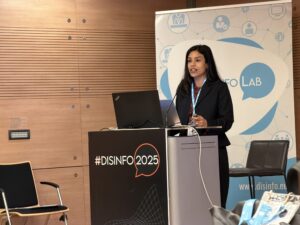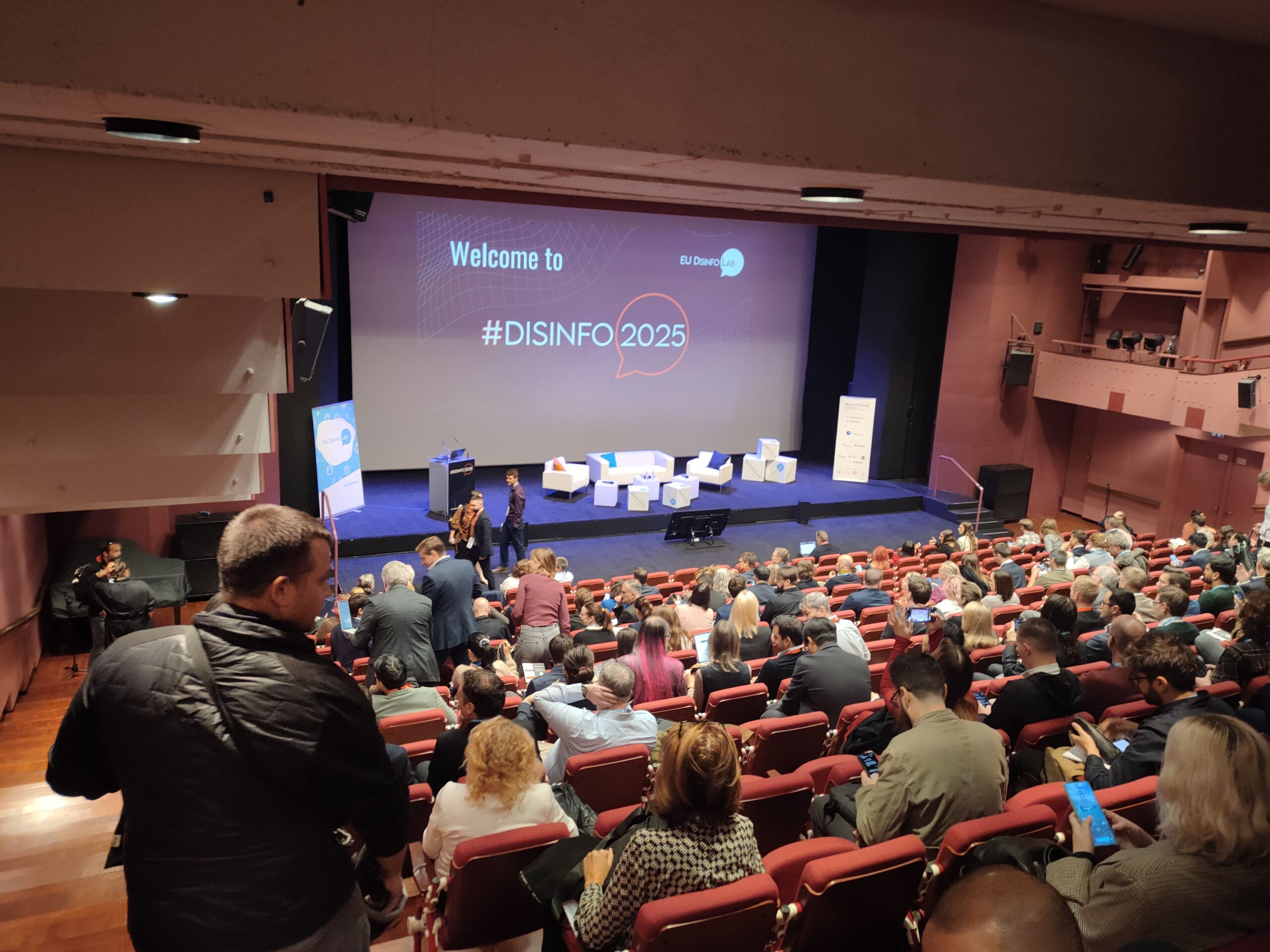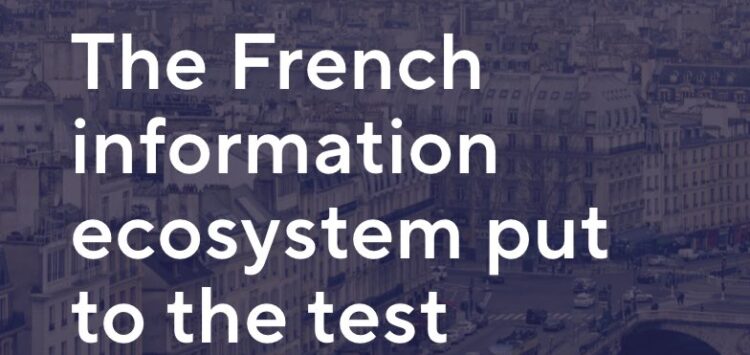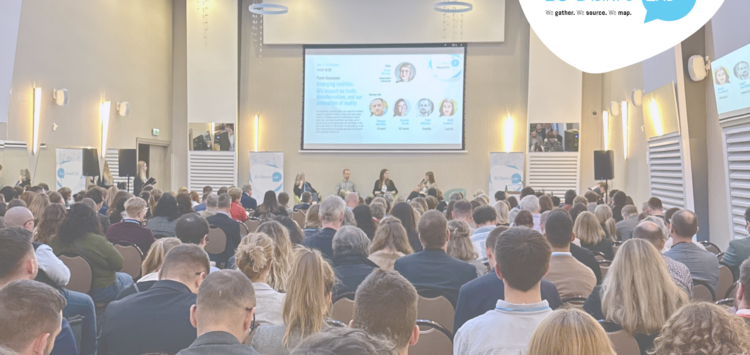#Disinfo2025: our key takeaways from the EU DisinfoLab’s annual conference
While threats against the community fighting against disinformation are on the rise, solidarity prevails. Civil society organisations, policymakers, platforms representatives and regulators gathered in Ljubljana, Slovenia, on October 15 and 16 for two days of discussions centered around many aspects of disinformation.
On 15 and 16 October, Slovenia flew the flag in the fight against disinformation. As in previous years, the annual EU DisinfoLab Conference drew significant international attention. According to its president, Diana Wallis, this sixth edition welcomed over 600 participants. The enthusiasm was so strong that a new track was introduced to host sessions dedicated to innovative solutions and often overlooked topics within the field.
Building community standards

This year’s conference provided an opportunity for us to showcase one of our key recent initiatives: RADAR, our open and free-to-use framework that introduces standardised tags for potential Digital Services Act (DSA) infringements. Shivika Sharma, our senior manager for digital threats and policy, presented it at the “Turning data into evidence” roundtable. During the event, we discovered that the framework has been adopted by Get Resilience, a platform developed by the European research project Saufex. This website enables citizens to report and document potential DSA violations, thereby facilitating the work of regulators. It also promotes the widespread adoption of RADAR, which we have been advocating since its release.
During the same panel, Stéphane Duguin, the CEO of the CyberPeace Institute, also highlighted the ObSINT guidelines, of which we are a member, which establish common rules for OSINT investigations. According to its coordinator Stephan Mündges, the European Fact Checking Standards Network (EFSCN), which developed criteria for fact-checking organisations, is currently setting up common standards for prebunking. These initiatives are designed to enable us to respond collectively to disinformation campaigns, ensuring a consistent and accurate response.
Stronger together
A spirit of collaboration ran through both days of the conference. As an example, the German nonprofit news organisation Correctiv partners with several organisations to increase the visibility of its work. Another noteworthy initiative unfolded during the last municipal elections in Barcelona, when the organisation Verificat asked candidates to provide them with the numbers and stats about their campaigning. This enabled preemptive fact-checking and the correction of erroneous arguments in real time during public debates.
In Moldova, the company International Media Support regularly cooperates with major national media outlets to limit the impact of disinformation campaigns before they reach their peak, by organising prebunking campaigns. Collaborations can also be transcontinental, as demonstrated by the ‘Truth Africa’ investigation into Russian disinformation in Africa. This investigation was led by the pan-African media outlet PesaCheck and the Polish association Pravda. Its president, Jakub Śliż, invited the audience to take a closer look at the FIMIs operating on the African continent, which he referred to as “the sandbox of disinformation”.
Exploring better ways to secure elections integrity
Media regulators and government agencies have also a role to play, regarding the recent elections in Romania, Poland and Moldova. Coimisiún na Meán, Ireland’s media regulator and Digital Services coordinator, has conducted a focus group on information integrity. Niamh Hanafin, Coimisiún na Meán’s Assistant Director of International Affairs, discussed ways to protect election integrity, such as establishing a code of conduct on disinformation, partnering with the national peace force to bridge the gap between online and offline harms, and updating guidelines for election broadcast coverage.
The French watchdog Viginum also has a specific role during electoral processes, reporting to the electoral authorities. Esther Lyonnet, Viginum’s deputy head of operations, explained that improving cooperation with platforms and sharing technical information is essential to strengthening resilience. “There are many possible responses, from raising awareness to setting up more active defenses”, she said. “Most of the time, during election periods, maybe the best thing to do is not publicly expose IMS (Information Manipulation Sets) and disinformation campaigns. The objective is to find balance to not giving them the credibility they do not deserve”, she added. According to Joe McNamee, a senior policy expert at EU DisinfoLab, the European Parliament is considering a new structure modelled on Viginum or the Swedish Psychological Defence Agency to combat FIMI.
Concrete solutions to fight disinformation campaigns
The conference also showcased new tools and tactics to strengthen our collective response. Craig Silverman, Canadian journalist and founder of Indicator Media, shared a suite of tools for collecting data from social media accounts, detecting AI-generated images, and analysing potentially fraudulent web infrastructure. During his presentation, Stéphane Duguin from the CyberPeace Institute mentioned Oppi, our training platform designed to simulate FIMI.
Solidarity matters
“When people hear ‘disinformation’, they hear ‘war that plays out on the Internet’. What’s really at stake is our collective defense of democracy”, said the AFP’s news security manager Jean-Marc Mojon. Nina Jancowicz, the former director of the Disinformation Board for the US government under the Biden administration, shared her experience of being labelled a censor by the Trump administration, and subsequently being threatened online and investigated by Congress. The Digital Services Act, along with European researchers and fact-checkers, is also being portrayed as a censor by the same administration. However, as Diana Wallis pointed out, “we’re all in this together”. Keeping this precious reminder, we are looking forward to attending next year’s conference, which will be held on 7 and 8 October in Vilnius, Lithuania.
(Photos: Check First)




